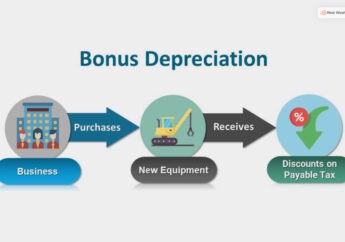Understanding Life Settlements As A Senior
by Abdul Aziz Mondal Finance 06 April 2024

Navigating the financial terrain in your golden years presents unique challenges and opportunities.
Life settlements emerge as a noteworthy option for seniors seeking to optimize their fiscal landscape. But what exactly are life settlements?
This concept might seem straightforward, yet its implications and processes are anything but elementary. Seniors considering this path must arm themselves with knowledge, weigh advantages against potential pitfalls, and discern how their circumstances align with the mechanics of life settlements.
It’s not simply about receiving an immediate sum; it’s also about understanding the long-term impact on one’s financial health and estate planning objectives.
Let’s break down the essentials and explore how this option could lead to more financial freedom in retirement.
Decoding Life Settlements: The Basics

At its core, life settlement is a transaction where a senior sells their life insurance policy for more money to a third party. The senior gets more than the initial cash surrender value, but the value is less than the net death benefit.
It’s a legitimate option when the insurance no longer serves its original purpose or premiums become unsustainable. But how does this differ from simply letting go of a policy?
The answer lies in maximizing potential returns. Often unseen as an asset, a life policy can indeed be liquidated. The process involves transferring ownership and beneficiary rights to an investor, who then continues paying the premiums until they eventually receive a payout upon the insured’s passing.
It’s crucial to approach this with eyes open. Life settlements are not quick fixes but strategic financial decisions. They bear considering if you’re navigating changing needs and looking for resources to bolster your retirement funds.
Related: What Is A Life Settlement? Top 5 FAQs
Navigating The Market: Selecting A Provider
Entering the life settlement market requires careful selection of a provider. There is a spectrum of companies offering these services, and finding the right fit can seem daunting. Key factors include reputation, transparency, and the terms they offer, impacting the value you’ll extract from your policy.
When considering candidates, it’s wise to conduct thorough due diligence. Investigate customer testimonials and check for regulatory compliance to gauge trustworthiness. Remember, this decision could significantly influence your financial landscape; therefore, choosing an established firm with robust client support is paramount.
The best firms greet this challenge with tailored advice for seniors exploring life settlements. A company like Beca Life underlines the importance of personalization in the life settlement process—ensuring that individual circumstances inform every part of the transaction, from valuation to closing.
The Growing Appeal Of Life Settlements

With the life settlement industry expanding at an average of 34% per year, it’s clear why more seniors are considering this option. This growth reflects a heightened awareness among policyholders who recognize life settlements as a viable means to enhance retirement revenue streams.
Determining whether this path is right for you involves several considerations:
Policy Eligibility: Not all policies qualify for a life settlement. Typically, those with a death benefit over $100,000 are considered eligible.
Tax Implications: Proceeds from life settlements can be taxable, although the specifics depend on individual circumstances and policy details.
Health Changes: Improved health can decrease the value of a settlement while worsening health might increase it.
Impact on Beneficiaries: Selling your policy changes who benefits from its payout; consider family expectations and needs.
Timing: The longer you wait, the less valuable your policy may become due to factors like age and health.
Making an Informed Decision: The Final Assessment
Before pursuing a life settlement, seniors must weigh the long-term implications. Life settlements can offer immediate liquidity but also relinquish a potential legacy for heirs. It’s not merely a transaction; it’s an adjustment of one’s financial journey as it approaches its horizon.
It is imperative to consult with financial advisors and loved ones who may be affected by this choice. Transparent dialogue brings clarity and aligns expectations, ensuring that all parties understand the ramifications. Sometimes, alternative strategies may surface during these discussions that better suit your objectives.
Remember, while life settlements open up immediate fiscal pathways, they should fit into a broader retirement strategy. They embody an instrument of adjustment rather than a standalone solution—a fact underscored by the necessity of strategic planning in any senior’s financial repertoire.
The Road Ahead: Evaluating Long-Term Impact
Opting for a life settlement is more than a financial choice; it’s a pivot in your estate planning that could alter the course of your post-retirement journey.
The immediate boost to your bank account must be considered against the backdrop of future needs and the legacy you envision. Like all substantial financial moves, this decision demands rigorous analysis and projection into the years ahead.
Consider these essential points as part of your evaluation:
Professional Advice: Engage with financial advisors to understand how life settlements integrate with your comprehensive retirement plan.
Future Expenses: Anticipate potential long-term care or medical costs that may arise and require funding.
Market Conditions: The value of a settlement can fluctuate with market trends; it’s important to time your exit appropriately.
Legal Considerations: Be aware of state regulations and protections when engaging in life settlements.
Psychological Readiness: Assess your emotional preparedness for selling a policy initially purchased for beneficiaries’ benefit.
Clarifying Eligibility: Who Can Pursue A Life Settlement?
Elucidating the eligibility criteria for life settlements is crucial for seniors considering this financial avenue. It’s not an all-access path; specific parameters define who can leverage this option.
Fundamentally, these transactions are designed for policyholders who have experienced a notable shift in their insurance needs or estate plans, typically characterized by age and health factors that affect policy valuation.
Essential eligibility requisites include:
Age Bracket: Sellers are usually expected to be 65 or older, although younger individuals with serious health conditions may qualify.
Policy Type: Universal, whole, and term life policies often meet eligibility standards.
Policy Value: Generally, policies should possess a death benefit of at least $100,000.
Health Status: A change in health since the policy’s inception could make a holder eligible.
Premium Payments: Policies should be beyond the contestability period and premiums up-to-date.
Reasons For Considering A Life Settlement

.
Some of the reasons to consider a life settlement are listed below so you can decide if you need a life settlement.
- A life settlement is a great option for people who do not need to provide any financial benefit for any beneficiary after their demise.
If you have kids who have grown up and don’t need looking after then life settlement is for you. Again if your partner is no more or does not need any financial benefit to support them then opt for a life settlement.
- You can consider a life settlement if you have any terminal illness which has a high treatment cost. Life settlement helps you with your medical bills especially if you are strapped on cash.
- A life settlement is also a great option if you are unable to pay for your life insurance premium instead of lapsing.
- If your term life insurance policy is not of a high cash value but your health is deteriorating due to illness then go for a life settlement.
Frequently Asked Questions About Life Settlements
Here are some frequently asked questions about life settlements that people often search on the internet. See if any of these questions resonate with what you want to find out about life settlements in general.
What Is A Life Settlement?
A life settlement is a transaction where a life insurance policyholder, generally a senior policyholder, sells their life insurance policy to a third party for more money. The life insurance policyholder gets more than the initial cash surrender value, but the value is less than the net death benefit.
Who Is Eligible For A Life Settlement?
There are two factors that make you eligible for a life settlement, your age and health. Any investor is willing to take these two factors into consideration when buying your life insurance policy. You have to be sick enough and old enough to qualify for a life settlement.
Any investor or a third-party buyer of your life insurance policy does not want to keep paying the premium for a long time. They are willing to buy the life insurance policy only because of the gain they will get once the policyholder expires.
So, people who are above the age of 65 years are going to be more eligible for life settlements. On average, 75-year-olds and above are more likely to opt for life settlements.
Who Does A Life Settlement Broker Represent?
A life settlement broker represents the life insurance policyholder or senior in the life settlement market.
Is A Life Settlement A good idea?
If you have a life insurance policy with high cash value and you don’t need the coverage due to some illness that has no cure. Or you don’t have much time to live or need money for your treatment. Then, life settlement is a great idea.
Conclusion
In closing, life settlements offer a distinctive financial lever for seniors who meet the specific criteria and seek fiscal fluidity over estate legacies. This move warrants judicious consideration and strategic alignment with your long-term retirement vision.
Embarking on this exploration with facts and knowing its merits and limitations, you can easily decide if it’s the right course for you and your beneficiaries.



































































































